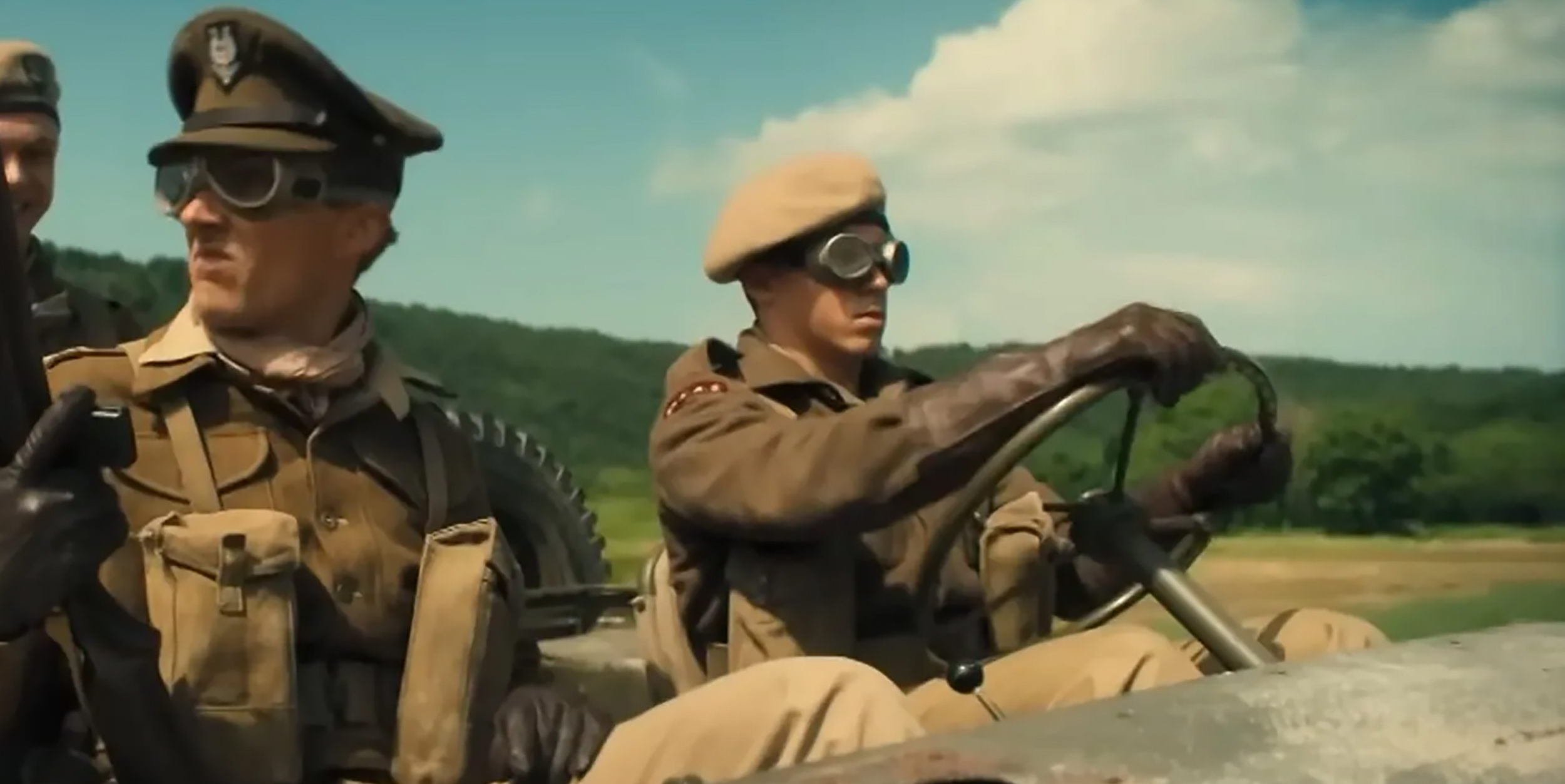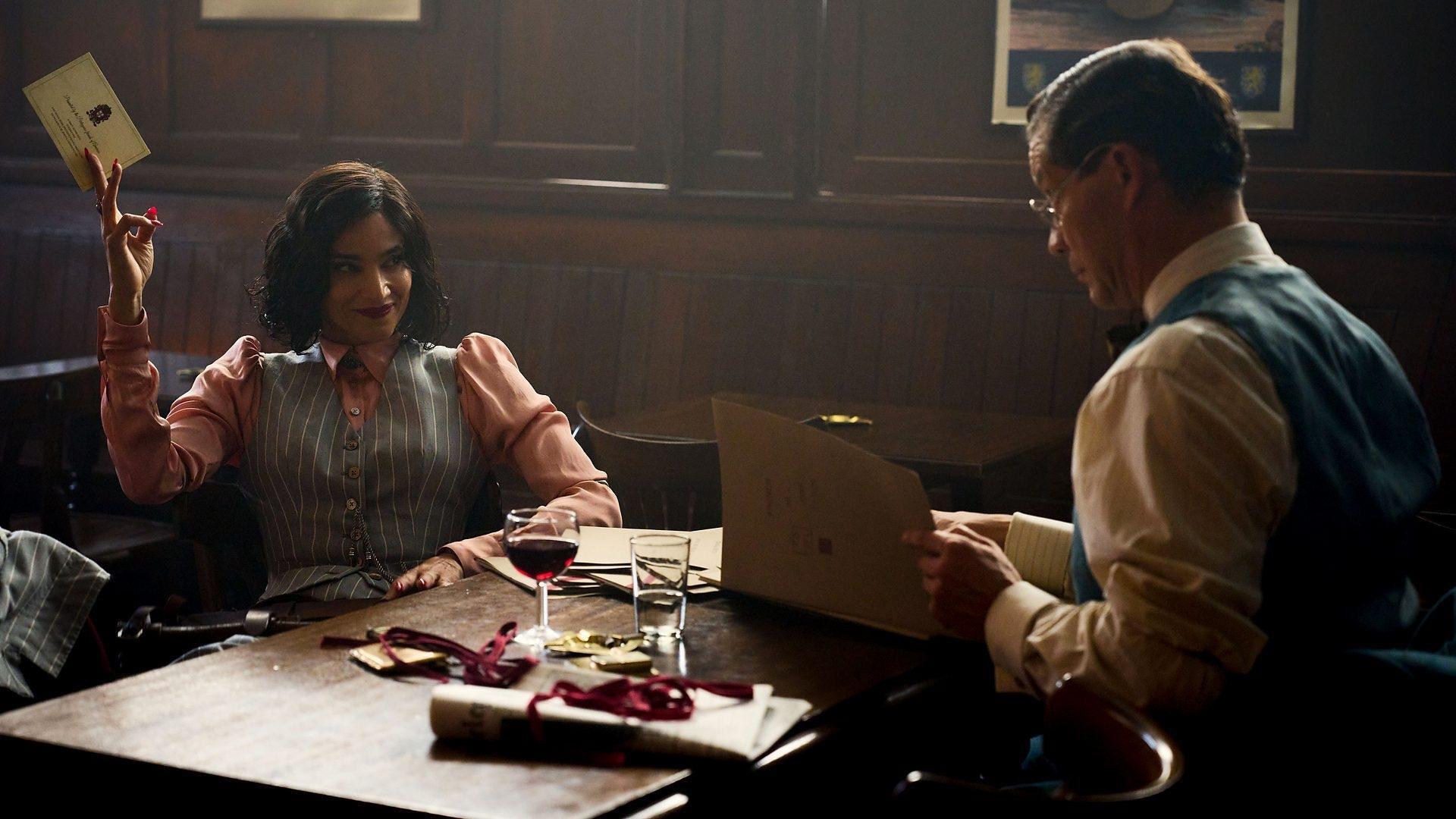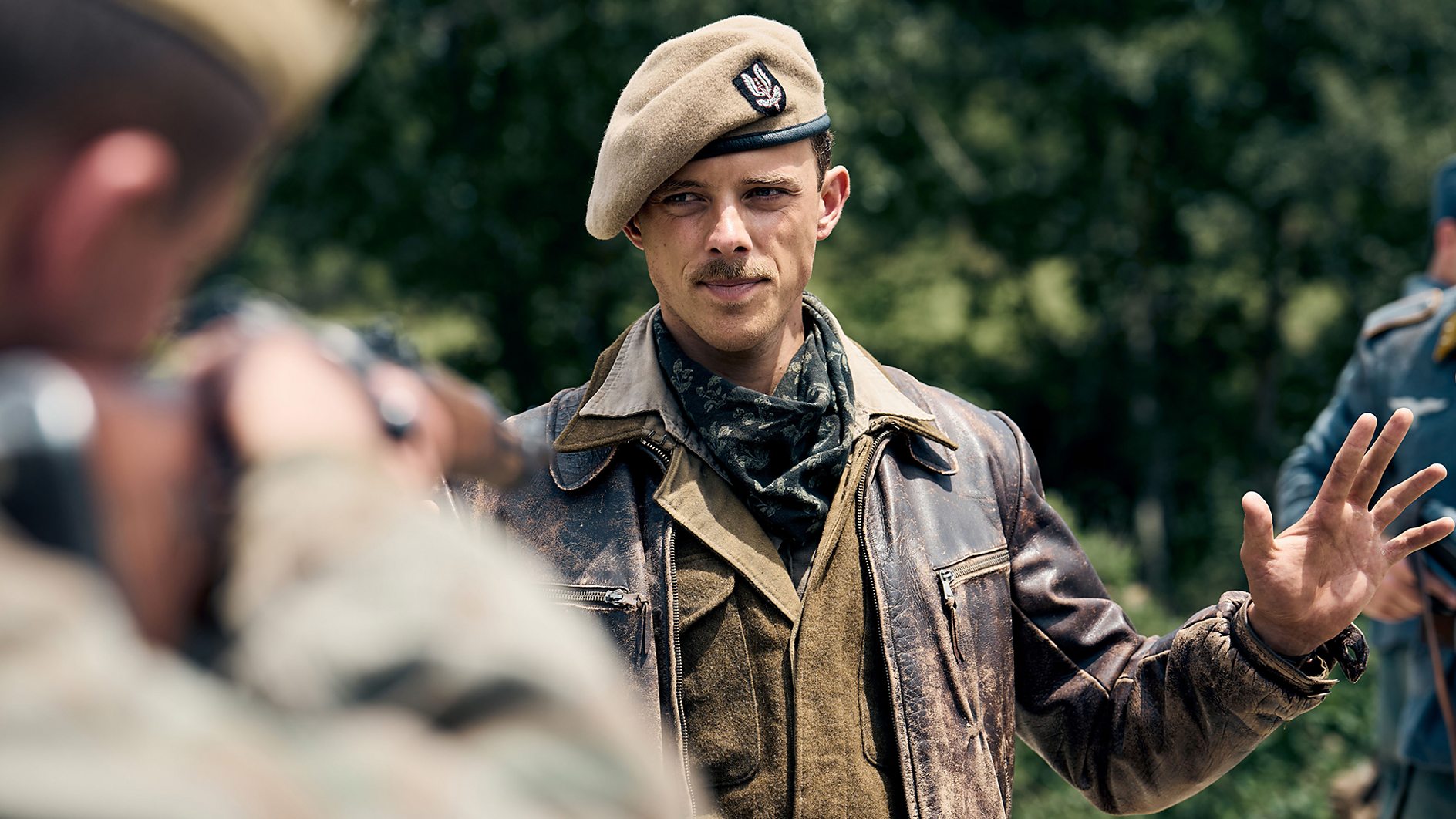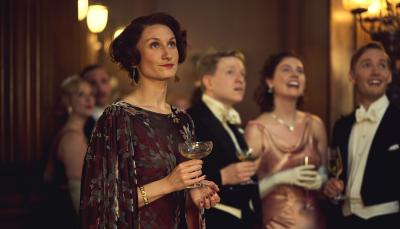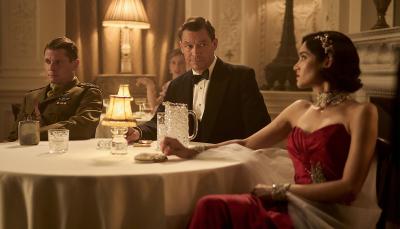'Rogue Heroes' Is The Best Steven Knight Show You're Not Watching
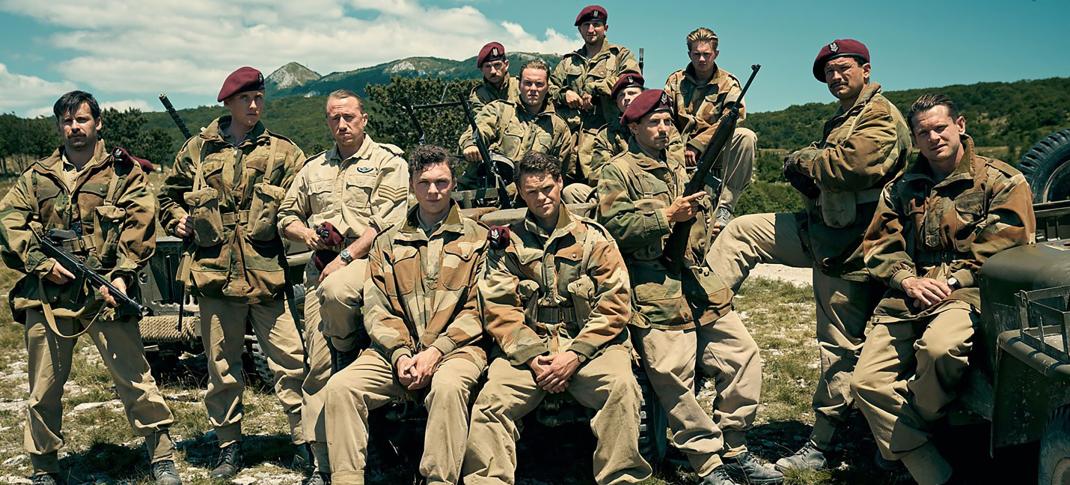
The cast of 'Rogue Heroes' Season 2: Mark Rowley as Jock McDiarmid, Jacob McCarthy as Johnny Copper, Theo Barklem-Biggs as Reg Seekings, Stuart Thompson as Anthony Greville-Bell, Bobby Schofield as Dave Kershaw, Jacob Ifan as Pat Riley, Corin Silva as Jim Almonds, Jack O’Connell as Paddy Mayne and Stuart Campbell as Bill Fraser.
BBC/Banijay Rights/Robert Viglasky
Rogue Heroes*, Stephen Knight’s latest series – at least until A Thousand Blows arrives next month – is back for a second season! In the US, Season 1 can be streamed via Prime Video, and Season 2 is on MGM+. While it’s a bummer to have such a solid, well-acted, expensive-looking BBC One series relegated to an obscure platform, it’s a pleasure to report that the second season of Rogue Heroes builds on its first season’s raffish, high-octane strengths and successfully adds more emotional heft as the risks faced by the British Army’s Special Air Service (SAS) units intensify on their way up the boot of Italy in 1943 and 1944.
*(In the UK, this series’s full title is SAS: Rogue Heroes, but we get the abbreviated title in a nod to American audiences’ likely ignorance of the SAS.)
Let’s back up a little, though. Rogue Heroes follows the creation and many missions of the SAS during World War II. The elite commando unit is the brainchild of three initially low-ranking officers: David Stirling, Jock Lewes, and Paddy Mayne (Connor Swindells, Alfie Allen, and Jack O’Connell, respectively). The men’s distinct yet complementary skills and temperaments set the tone for their new, unofficial, and quite ragtag regiment, a tone best described as “only these absolute madmen can save the world from Nazism and fascism, let ‘er rip!”
Stirling, the charming son of a venerated general, uses his gifts of gab and not-entirely-disreputable grift to good use, convincing his father’s former colleagues at General Headquarters in Cairo to let him recruit some fellow addicts of derring-do to join his experimental airborne detachment. Stealth, surprise, and viciousness, all deployed under cover of night, might disrupt General Rommel’s seemingly inevitable complete occupation of Northern Africa. While Stirling manages the administrative end of things, the far more reserved Lewes trains the men to withstand and triumph over harsh desert conditions. Mayne, a hotheaded Northern Irish poet with a seemingly unslakable thirst to destroy the enemy, was tasked with strategy and general mayhem.
The three men are aided in their endeavors by Colonel Dudley Clark (Dominic West), the British Army’s chief of intelligence in Northern Africa, who invented the SAS as a phantom regiment for propaganda purposes, and Eve Mansour (Sofia Boutella), the preternaturally capable French-Algerian deputy chief of intelligence. Season 1 was a classic of the Getting The Band Together genre, showcasing a handful of scrappy, resourceful guys as they find other scrappy, resourceful guys to join them in creating an occasionally dazzling kind of warfare and destroy the Axis powers’ plans to control Northern Africa in the process.
Season 2 picks up shortly after Season 1 left off, with David Stirling in a POW camp in Northern Italy, Paddy Mayne serving as the commanding officer of the SAS, and Eve Mansour presumed dead following a catastrophic plane crash. As he did before the opening of the first season, Paddy lands himself in a Cairo military prison again by smashing up a hotel’s beautiful tea room after being denied permission to return home to attend his father’s funeral. As he drily describes it in a voiceover letter to his mother, GHQ’s decision has left him “in a rather poor frame of mind.” Most people don’t smash up an entire restaurant when they’re in a poor frame of mind, but most of us aren’t Paddy Mayne.
It’s just as well that Paddy had this little tantrum because his presence in Cairo makes it easier for Lieutenant Colonel Bill Stirling (yes, David’s older brother, played by The Great’s Gwilym Lee as a long-suffering straight man) to find Paddy and convince him to come around to Bill’s plan to save the SAS. They’ve been so successful in defeating the Germans and Italians that other venues in the European theatre now beckon, but they can’t expect to go around all willy-nilly, setting their objectives, sabotaging planes and supply lines. Now, they will have to do weird things like follow orders and act as vanguard forces, clearing beaches and capturing towns ahead of regular-service regiments. They’re also obliged to tolerate the existence of a second SAS unit, modeled on Paddy, David, and Jock’s brainchild, but better behaved and led by Bill. Sibling rivalry sure is something!
The push and pull between Bill’s and Paddy’s approaches to prosecuting the war – one buttoned-up and quite starchy, the other anarchic and rather feral – keeps the story chugging along over the season’s six episodes and thousands of miles of sea and land the SAS must make safe for the regular Army troops. This tension also functions as a bulwark against Rogue Heroes becoming just a wartime procedural with high production values, which was a risk Knight ran once David was packed off to a POW camp. Bringing in Bill as a higher-stakes foil for Paddy makes it easier for David to be a successful featured character off on his own side quest this season, as he attempts and fails several times to escape imprisonment. (Following his capture, the real-life David Stirling was a POW until the end of the war.)
On the plus side for David, his beloved Eve manages to survive the presumed fatal plane crash at the end of last season and pulls off a very efficient conjugal visit with him, disguised as a nun. In Rogue Heroes’ first season, moments of levity like their tryst, the addition of an adorable dog to the cast (Withers, who, his species notwithstanding, is probably the cleverest man in the SAS and who survives the season just fine), and Staff Sergeant Jim Almonds describing his new squad of SAS recruits as unsettlingly sane and logical, were just part and parcel of the loose-limbed fun. In its second season, Rogue Heroes goes all-in on the horrors of war and the effects that witnessing, causing, or failing to prevent so many deaths has on the men. Humor, fun, and silliness are all in shorter supply, making the lighter moments essential, as they save several episodes from being too upsetting to watch.
As the SAS – whose ranks have grown thanks to the new recruits – make for Sicily under the cover of night, they struggle to follow Paddy’s order not to help or attempt to rescue any of the British soldiers from a different regiment who have crash-landed in the waters of the Mediterranean. Seeing the faces of granite-hard men — guys we’ve seen casually cut other men’s throats and shoot at unarmed Axis airmen without a hint of regret — transform into masks of grief and revulsion as their boats cut through a wall of desperate wailing is harrowing.
One of the soldiers in the water grabs hold of a line of rope but is cut loose by Sergeant Kershaw (Bobby Schofield), lest Paddy shoot him. Kershaw’s anguished apologies to his fellow countryman as he saws through that young man’s literal lifeline leave his colleagues looking as shattered as if they’d done the rope-cutting themselves. As terrible as it is, Paddy's order is necessary to their mission’s success. Italy could not have liberated itself without a successful troop landing, and there could have been no successful one if the SAS had arrived at their assigned beachheads late. The ensemble sells every moment, using the good, the bad, and the ugly experiences they face to bring each man’s complexity to life, trying to reconcile the violence they perpetrate in pursuit of peace. Theo Barklem-Biggs (Sgt. Reg Seeking) and Corin Silva (Staff Sgt. Jim Almonds) turn in particularly warm, nuanced performances as men of conscience grappling with their often inhumane, grisly jobs.
As Paddy Mayne, Jack O’Connell has the most demanding assignment, portraying a bloodthirsty, unpredictable grudge-nurser par excellence while holding him back from descending into cartoonishness. In O’Connell’s hands, Mayne’s emotional baseline of permanently aggrieved melancholy is raw but never overwrought. It makes room for him to be both a compelling, trustworthy leader and an often-drunk, poetry-spouting, maddening lout. It’s also a protective shell around his tender heart, permanently broken since the Season 1 death of his best friend / unspoken yet clear love interest, Eoin McGonigal. Watching this season, it suddenly occurred to me that Mayne’s closest on-screen analog is Ian McShane’s performance as the floridly verbose, reflexively violent saloon/whorehouse operator Al Swearengen in Deadwood.
Rogue Heroes’ second season takes us up to D-Day. While I’m a little wistful about the series losing one of its most notable distinctions – the Egyptian and Italian settings – this story will only move in one direction. As long as Steven Knight doesn’t burn out (2025 alone promises the Peaky Blinders movie, A Thousand Blows, and House of Guinness), here’s to a third season soon.
Rogue Heroes Season 2 debuted on MGM+ on Sunday, January 12, 2025, and will stream one episode a week through the end of February.

